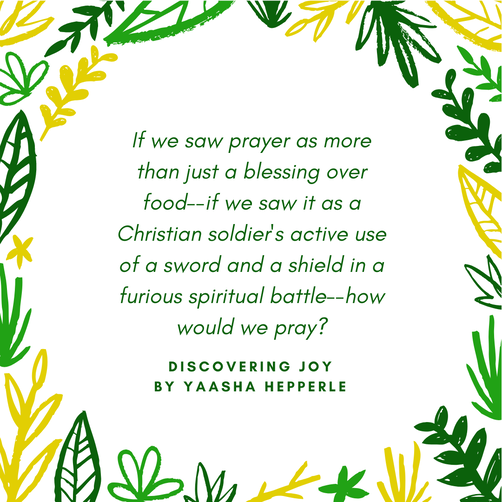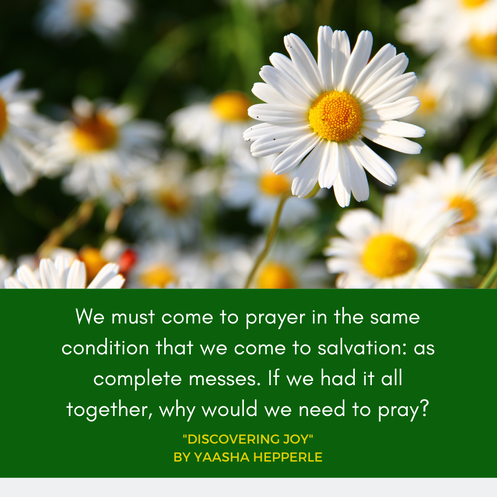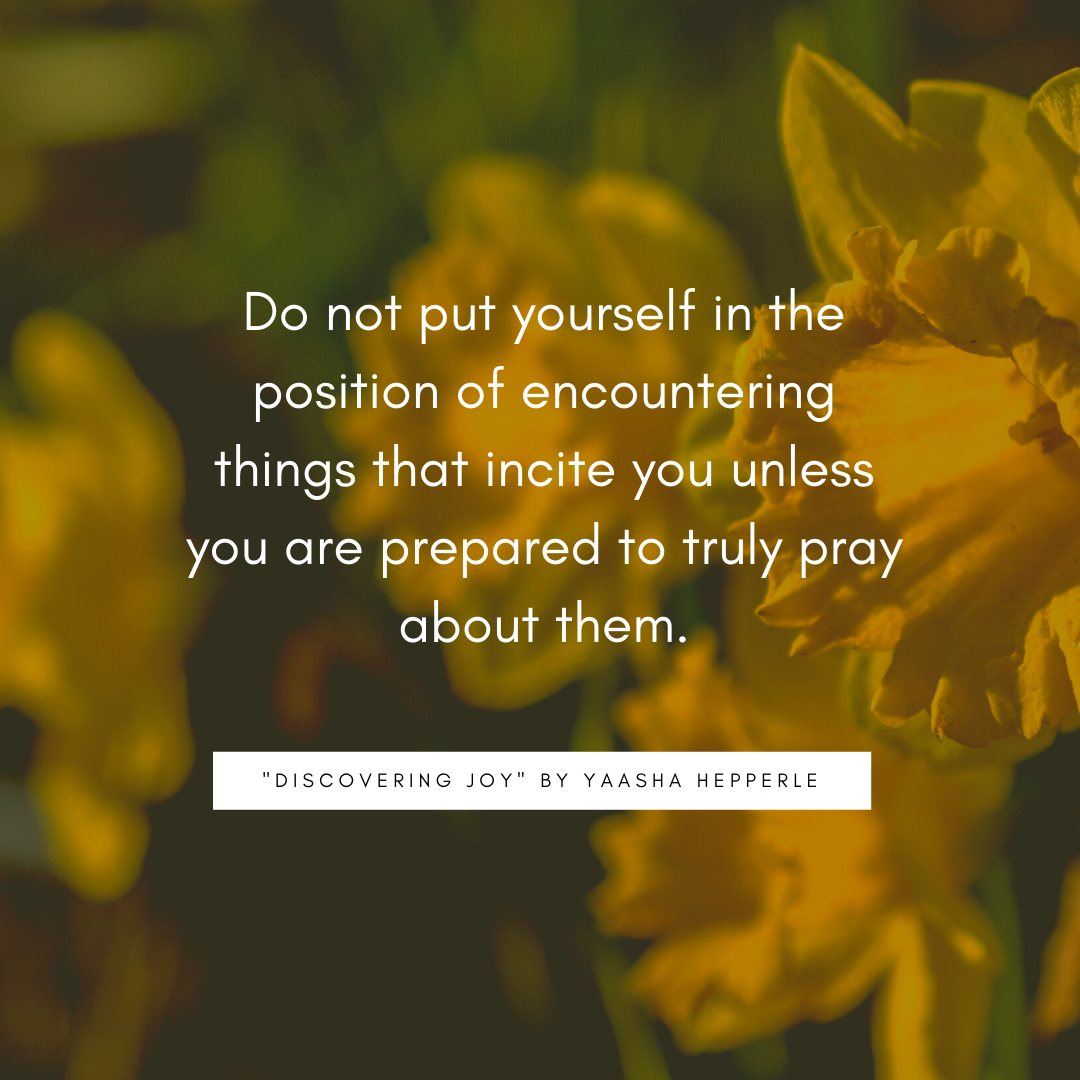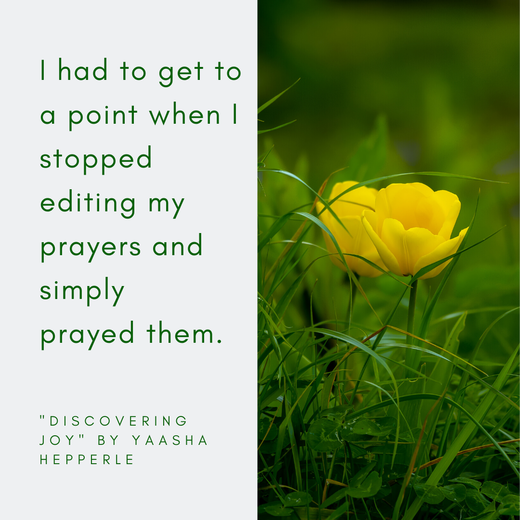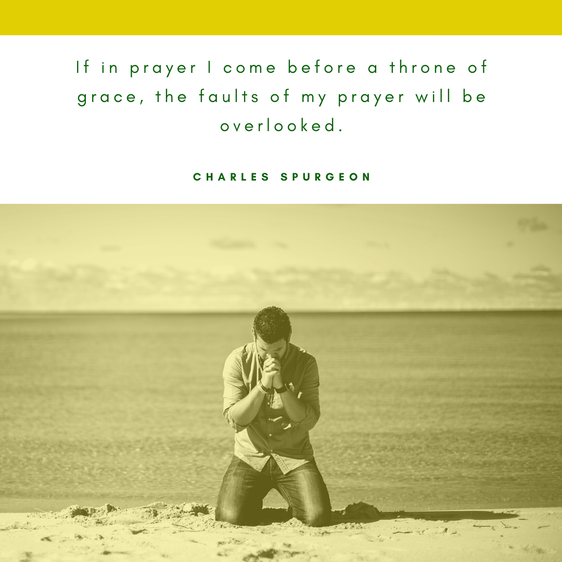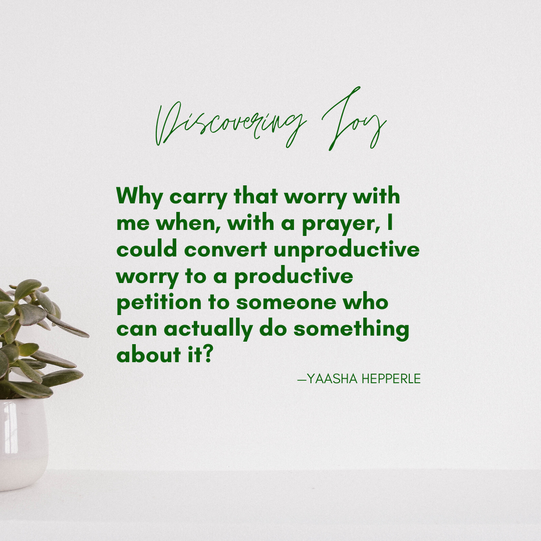|
This is Chapter 9 of "Discovering Joy," a devotion-style diary written during the coronavirus self-isolation. I've been posting it chapter-by-chapter on Wattpad. Enjoy! The next few chapters will be about prayer, not because I set out to write some sort of theological treatise on prayer (I'm not nearly qualified!) but because I believe the Lord is building our prayer muscles during this time of self-isolation, global fear, and suffering. By "our" I don't mean just my husband and I, but the church as a whole. If God's people will not pray, who will? If we do not believe prayer to be effective enough, important enough, crucial enough--then do we truly believe in the God we say we do? If we saw prayer as more than just a blessing over food--if we saw it as a Christian soldier's active use of a sword and a shield in a furious spiritual battle--how would we pray? These are the things that I have learned about prayer. I hope they help you as you also join the "prayer front" in this battle! "Reading the Bible is spiritual food," Paul said to me once. "But prayer is emotional food. I can read my Bible often, but if I'm not praying, my spirit still feels starved." In the last two years, the Lord has been re-teaching us how to pray. I say "re-teaching" because He's always teaching us to pray, and we always live out cycles of fervency followed by complacency. If there's one thing that is predictable, it is the distractable nature of our human hearts. But if God can count on our distraction, we can count even more on God's ability to draw His children back into proper alignment and relationship with Him. He is a very, very patient Father. As a note, a resource that we have found especially helpful is A Praying Life by Paul E. Miller, one of the most practical, down-to-earth, gut-punchingly honest explorations of the subject that I have ever read. My husband Paul and I read it together, and I am now going through it as a weekly book study with the women in my church caregroup. God has a way of stacking resources and spiritual nudges. Right now, I am also participating in weekly discussions of Leslie Ludy's Set Apart Marriage and Motherhood course materials, and this past week included a challenging discussion about the often-neglected power of prayer in a godly marriage. It seems that every sermon I listen to now--whether by one of my own pastors, by Tim Keller, by Eric Ludy (Leslie's husband), or some other pastor--includes some affirmation of the necessity of prayer. My daily Bible reading explodes with references to prayer and communion with the Lord. Just looking back on my old journals reveals prayers I had forgotten I prayed and answers that prove God's action on my behalf. Then the COVID-19 pandemic came on the scene and there really wasn't much left to do BUT pray. The pattern is now so loud in my life that I laugh a little every time I see yet another reference to prayer. "I get it, Lord! You want me to pray." So what have I learned as the Lord has grown my awareness of relationship through prayer? 1. Start where you are at.Don't get your heart right first; come with your heart as it is. If you're angry, come angry. If you're discouraged, come discouraged. If you're doubtful that prayer has any usefulness whatsoever, come in doubt. We must come to prayer in the same condition that we come to salvation: as complete messes. If we had it all together, why would we need to pray?
The blessing is that "Jesus knows our every weakness," so we can therefore "take it to the Lord in prayer." He does not judge those who come to Him with their faults, failures, and frustrations visible to Him. He sees them anyway. In fact, it is His intention to make those things visible to us, because it is only in the stark honesty of our relationship with Him that we begin to see the true depth of our need.
If there's some big emotion stirring in you at the moment, pray about that. In fact, do not put yourself in the position of encountering things that incite you unless you are prepared to truly pray about them. A friend of mine wisely said, "Especially when it comes to things I see on social media, I have decided that unless I'm prepared to pray about the things I encounter there, I won't even open the app." This has been a helpful perspective for me to remember as I've seen the coronavirus bring out the best and the worst of humanity. Emotion with nowhere to go and nothing to accomplish only breeds poison. Emotion that is immediately filtered through Christ-perspective in prayer produces righteous response and action.
2. Ditch the prayer rules.I have laughed my way through Tim Hawkin's stand-up comedy about prayer and worship: "Prayer is a powerful thing, but when you grow up in church, you hear prayers all the time in different styles and stuff, and different quirks people have when they pray." He pokes fun at the "hedge of protection" ("How about a cement wall with some razor wire on top?"), or the overuse of "just" or "Father," and phrases like "bless this food and the hands that prepared it" ("Why not the whole body?"). As he says at one point: "You don't talk to your friends like that!" While it's good for a giggle, the point that Tim makes is relevant on a deeper level too. Church culture has created rules and invented phrases that we apply to prayer which often hinder our actual praying. We wonder if "you" is okay instead of "thee," we're afraid perhaps we repeated ourselves or--dear goodness, did we just forget what we were praying for and lose our train of thought? This is one of the reasons why corporate prayer is so sparsely attended; the self-consciousness of needing to "pray correctly" has dampened the desire to pray at all. Ever listened to a kid talk to a parent? They repeat themselves constantly, backtrack, blunder halfway through a sentence and then pause to collect their thoughts, start a totally new train of thought in the middle of a previous train of thought... In terms of eloquence and oratory, they're disasters, but they're genuine. And it's this genuineness that the Lord especially prizes.
Another thought: The ACTS structure is a great way to organize your prayer, but it's only useful if it moves you into deeper fellowship, not if it becomes a rule. I've found at times that I've become so hung up on Adoration, Confession, Thanksgiving, and Supplication that I've grown frustrated with my meandering prayers. Did that particular topic fall under the category of Confession or Supplication? Did I put equal time into all four categories? Wait a minute, did I just move straight from Adoration to Supplication? Why was Supplication always uppermost on my mind, anyway? Couldn't I just worship God without selfishly asking Him for my needs (or wants) all the time? Was I a bad Christian? When learning to pray, especially in the early stages, I abandoned structure. It was way more important to talk to God at all than to make sure I followed specific prayer guidelines. I had to get to a point when I stopped editing my prayers and simply prayed them. 3. Pray distracted.
This happens to me all the time. I'll start off praying about my husband's job situation and, suddenly, I'm stressing over the phone call I need to make to clear up some health insurance confusion. Oh, sorry, God! How dare I get distracted! I'm going to force myself back into praying for my husband's job now. Here's a novel idea: If you're distracted, pray about the distraction--not a prayer that it will go away, but a prayer about that thing itself. If it is intruding on your thoughts, it's obviously something that needs prayer. So when my anxiety over the health insurance phone call interferes with my prayer for my husband, I pray for the phone call and my attitude about it. Amazingly, because I've now put that issue before God, it loses emotional power over me, and I can proceed with the prayer. As often as I get distracted, I pray about that thing. Two things come out of this. First, I discover that I have categorized my worries as "Things Worth Praying For" and "Things Not Worth Praying For." My arbitrary criteria for these categories don't match the practical reality, however, since the "Things Not Worth Praying For" often intrude on my thoughts far more than the things "Worth Praying For." Why carry that worry with me when, with a prayer, I could convert unproductive worry to a productive petition to someone who can actually do something about it? Secondly, I discover that, after praying for several weeks like this, those "little things" that have been cluttering my spiritual vision are at last cleared away in prayer and I can see the bigger picture struggles that have been contributing to those little things. Now I am able to attack, not simply the leaves or the baby roots of the sin habit or spiritual obstacle, but the giant taproot that has been feeding the whole weed. Another thought: When I first started to pray, I really disliked the fact that my prayers tended to be 75% "God, please help" and 25% "Thank you, God." Some days it was more like 90% and 10%! While I believe it is super important to remember to praise God , I made an interesting discovery. After a few weeks of praying about all my anxieties, fears, and requests, I was no longer nearly as anxious or fearful. My prayers turned from simply addressing my daily problems to global concerns and, from there, to seeking God's greater will to be done. It was like I had worked through years' worth of backlogged requests and was finally getting to the meat of prayer and connection with my Father.
So, yes, pray with gratitude. But pray about everything else on your heart too. There is something to be said for just getting it all off your chest and then watching how your prayers naturally shift from a me-focused spectrum to a God-focused spectrum.
1 Comment
6/7/2021 11:46:06 am
I found this on internet and it is really very nice.
Reply
Leave a Reply. |
Meet YaashaNone of my life has gone the way it was "supposed to go," but I don't love my life any less because of the hardships and new directions. I see so much unexpected good in it, and I want others to see the good in theirs. Archives
May 2020
Categories
All
|
